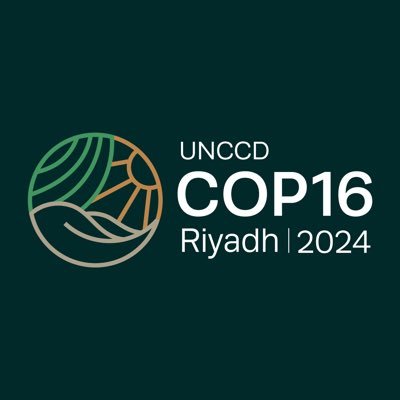Saudi Arabia Advocates Global Cooperation at COP16 Riyadh
Hyphen Web Desk

Al-Fadley highlighted that land degradation affects over 1.3 billion people globally, with its consequences extending to food security, biodiversity loss, and climate change. During the opening sessions, he urged attendees to recognize the urgency of the issue, stating that without decisive action, the challenges posed by land degradation would exacerbate existing vulnerabilities, particularly in developing countries. The minister also noted that Saudi Arabia has initiated several domestic programs aimed at restoring degraded lands and improving agricultural practices, which could serve as models for other nations.
The conference agenda is packed with sessions focused on sharing best practices and innovative solutions to combat land degradation. Experts from various fields will present their insights on sustainable land management, restoration techniques, and the role of technology in monitoring land health. The discussions are expected to cover topics such as agroforestry, desertification, and the integration of indigenous knowledge in land restoration efforts.
One of the critical aspects of COP16 is the emphasis on financial investment in land restoration projects. The Saudi government has committed significant resources to this cause, reflecting its dedication to sustainable development. The Kingdom has announced plans to establish a global fund aimed at supporting countries in their efforts to combat land degradation and promote sustainable land management practices. This initiative seeks to mobilize both public and private sector investments, creating a financial mechanism that can facilitate large-scale restoration efforts.
Emerging trends at the conference indicate a growing recognition of the interconnection between land health, climate resilience, and sustainable development. With the increasing frequency of extreme weather events and shifting climate patterns, the need for adaptive land management practices is more critical than ever. Various stakeholders, including scientists, policymakers, and non-governmental organizations, are collaborating to devise strategies that address the multifaceted nature of land degradation.
International organizations, including the United Nations Environment Programme (UNEP) and the Food and Agriculture Organization (FAO), are actively participating in COP16. Their involvement underscores the global significance of the conference and the urgent need for collaborative frameworks to combat land degradation. Both organizations have emphasized the importance of integrating sustainable land management into national policies and programs.
There is a notable shift towards using technology and data-driven approaches to monitor and manage land resources effectively. Remote sensing and geographic information systems (GIS) are increasingly being utilized to assess land conditions, allowing for more informed decision-making processes. The integration of these technologies into land management practices represents a promising development in the fight against land degradation.
Key players from various regions are also contributing to the discourse at COP16. Countries such as Brazil, South Africa, and Australia are sharing their experiences and lessons learned from combating land degradation within their borders. These exchanges of knowledge are expected to foster collaborative efforts, enabling countries to adapt successful strategies to their unique contexts.
The involvement of the private sector in discussions about land degradation is another noteworthy trend at COP16. Businesses and corporations are increasingly recognizing their role in sustainable land management and are actively seeking partnerships with governments and civil society. This collaborative approach can lead to innovative solutions that benefit both the environment and economic growth, demonstrating that sustainability and profitability can go hand in hand.
Public engagement and awareness-raising efforts are also integral to the objectives of COP16. The Saudi government, alongside various non-governmental organizations, is working to educate communities about the importance of land restoration and sustainable practices. These initiatives aim to empower individuals to take action at the local level, fostering a sense of stewardship for the land.
As COP16 progresses, the hope is that the discussions and collaborations will yield concrete commitments and actionable plans to combat land degradation. The conference serves as a critical juncture for the global community, urging nations to prioritize the health of their lands and the well-being of their populations.
Labels:
#Syndication
Share:
